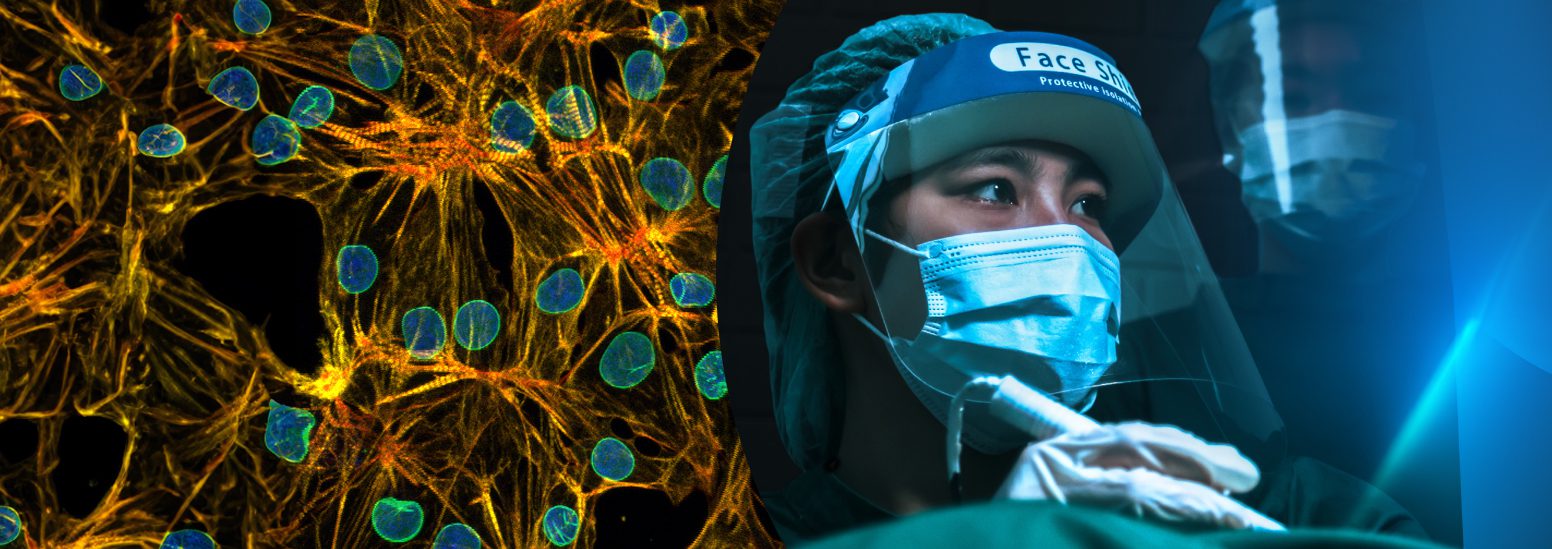As medical fields experiencing rapid, revolutionary change, biotechnology sits at the sweet spot between engineering, physical sciences and life sciences, where it can leverage cutting-edge research collaborations. Building on Cornell Engineering’s long history of innovation in working with biological systems and developing solutions for diseases such as cancer, our efforts have the potential to transform current approaches to improving human health and make a meaningful impact on people’s lives.
-
3,000,000
People currently using a cardiac pacemaker, invented by Cornell engineer Wilson Greatbatch ’50.
-
2022
Year a human received the first 3D-printed ear implant, thanks to a company co-founded by engineering professor Lawrence Bonassar.
-
229
Miles between Cornell Engineering in Ithaca and Weill Cornell Medicine in NYC, two institutions that collaborate on research and programs.
-
5
School of Biomedical Engineering professors inducted into the National Academy of Inventors, more than any other school at Cornell.
Latest News
-
![A smart sensor that attaches to the tip of a syringe can measure, in real time, the concentration and viability of the cells that pass through it – a potential breakthrough for biomedical 3D printing and cell therapy.]()
From lab to patent: Undergrad creates smart syringe for bioprinting
A smart sensor that attaches to the tip of a syringe can measure, in real time, the concentration and viability of the cells that pass through it – a potential breakthrough for biomedical 3D printing and cell therapy.
-
New biodegradable graft could help cardiovascular patients
The first-of-its-kind material not only expands and contracts like blood vessels but is also biodegradable; new vascular cells to grow around the graft as the body absorbs it.
-
MouseGoggles offer immersive look into neural activity
Cornell researchers built miniature VR headsets to immerse mice more deeply in virtual environments that can help reveal the neural activity that informs spatial navigation and memory function and generate new insights into disorders such as Alzheimer’s disease and its potential treatments.
Select Centers and Facilities
- Center for Life Science Ventures
- Cornell Institute for Biotechnology
- Cornell Center on the Physics of Cancer Metabolism
- Engineering Innovations in Medicine
- MSKCC-Cornell Center for Translation of Cancer Nanomedicine
- Center for Point of Care Technologies for Nutrition, Infection and Cancer for Global Health
Select Programs
- Minor
- B.S.
- M.Eng.On Campus
- M.Eng.Distance Learning
- M.S.
- Ph.D.
-
Biomedical Engineering
Combines engineering with medical sciences to improve healthcare. Ideal for those driven to innovate in medical devices, diagnostics, and treatment technologies.
-
Engineering Physics
Combines engineering and physics to solve high-tech problems. Ideal for those interested in applying physics principles to developing innovative technologies.
-
Chemical Engineering
Focuses on transforming raw materials into valuable products through chemical processes. Great for those interested in industries like pharmaceuticals, energy, and manufacturing.
-
Materials Science and Engineering
Studies the properties of materials and their applications. Ideal for those excited about developing new materials for industries like electronics, energy, and healthcare.
-
Biological and Environmental Engineering
Combines biology, engineering, and environmental science to develop sustainable solutions for global challenges like food production, clean water, and renewable energy. It’s ideal for those passionate about sustainability and innovation.
-
Operations Research and Information Engineering
Optimizes complex systems using data and mathematical models. Ideal for those interested in logistics, decision-making, and improving processes.
-
Systems Engineering
Focuses on designing and managing complex systems. Ideal for those interested in coordinating processes to create efficient, scalable solutions for global challenges.

